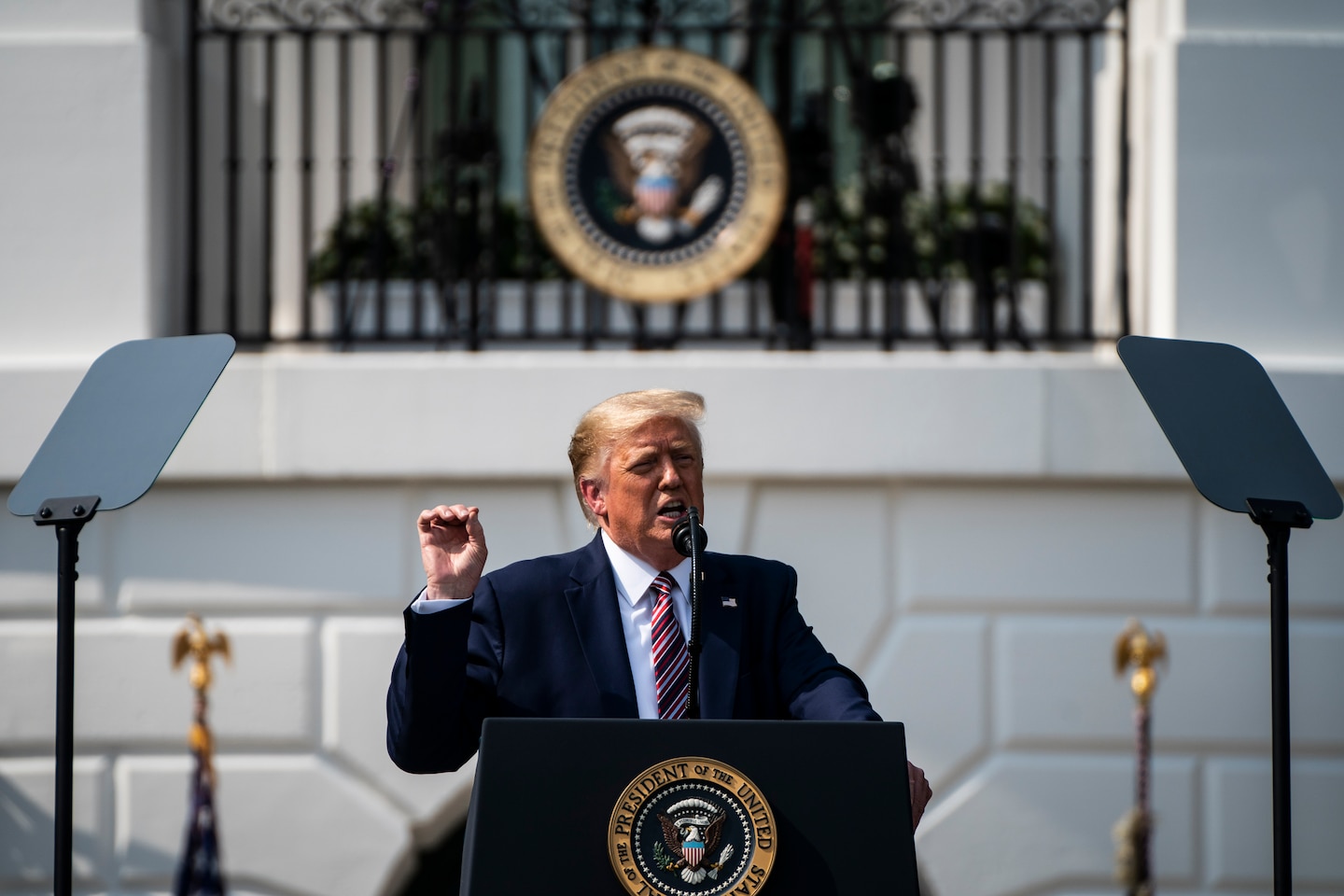If Trump makes a comeback, it’ll be because he relied on disgust of the elites

“You know what the trouble is, Brucey?,” the cornered but sympathetic union man says to the lobbyist he hired with tainted money to line politicians’ coffers.
“We used to make s— in this country,” Sobotka mutters. “Build s—. Now we just put our hand in the next guy’s pocket.”
There is the distilled essence of the working-class swing vote that elected Donald Trump in 2016. And if he pulls off a comeback in 2020, Trump will have again relied on widespread disgust with elites attached to government power — media, economic and academic types — to win. Joe Biden’s direction that unemployed coal miners learn to code embodied that sort of elitism. “Anybody who can throw go down 300, er, 3,000 feet in a mine can sure as hell learn to program,” Biden declared in late 2019.
The Sobotkas of America, of all ages and races, and their families — especially those who never broke a law in their lives — will shake their heads and double down on Trump.
The chattering class knows the case for Trump among middle-class and affluent voters. Trump has fundamentally reset America’s relationship with the Chinese Communist Party, and in a series of recent speeches by national security adviser Robert O’Brien, FBI Director Christopher A. Wray and Attorney General William P. Barr, a hardheaded realism about the CCP has been laid out in detail. This Thursday, at the Richard Nixon Library in Yorba Linda, Calif. (where I serve as the president of the Nixon Foundation), Secretary of State Mike Pompeo is expected to deliver a definitive statement of Trump’s policy toward Beijing. The last rites over a once-dramatic opening to China will be delivered on a stage 100 yards from Nixon’s grave.
Trump will again run on a platform of America first, and on rebuilding the economy he built once until it was shuttered by the novel coronavirus. Trump will point to his build-up of the military budget, his clear-eyed view of the CCP, a growing Navy, the Space Force, the revitalized nuclear deterrent.
Trump will run on his massive deregulation, which will allow the economy to rebound rather than be bound up by the regulatory Lilliputians he has swept aside with the repeal of hundreds of regulations embodied in tens of thousands of Federal Register pages. Trump will run toward his handling of the coronavirus as well, citing again and again his decision to restrict travel from China in late January.
Democrats were late to the bell. On Jan. 31, the same day that Trump imposed restrictions on travel from China, Biden blasted Trump, saying, “We have, right now, a crisis with the coronavirus. This is no time for Donald Trump’s record of hysteria and xenophobia — hysterical xenophobia — and fearmongering to lead the way instead of science.” House Speaker Nancy Pelosi (D-Calif.) visited San Francisco’s Chinatown. “Everything is fine here,” Pelosi said. “Come because precautions have been taken. The city is on top of the situation.” As late as April 1, The Post published an article with the headline “New York Mayor Bill de Blasio’s repeated comments downplaying the coronavirus.”
Trump’s blunt pummeling of opponents provides his opponents with an aesthetic argument against him that boils down to: He’s just not nice enough to be president. Their arguments about his “threat to the Constitution” are absurd. Trump has appointed justices and judges faithful to the Constitution. President Barack Obama is the president who ignored the document with wild theories about, to cite just two examples, recess appointments and wholesale suspensions of the laws governing immigration. Trump is the constitutionalist; Biden leads the radicals.
An often hysterical media endlessly chants the same anti-Trump refrains. But voters have to ask themselves: Which man do they want squaring off against Xi Jinping, rebuilding the economy, appointing judges, funding the military?
Read more:






